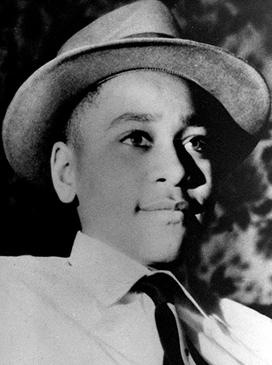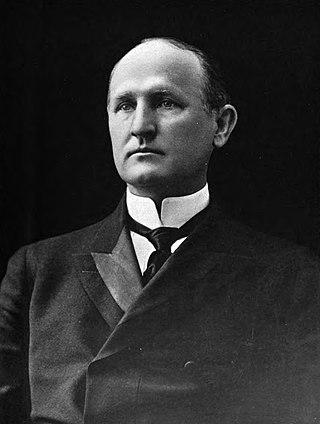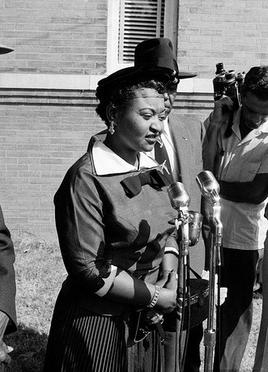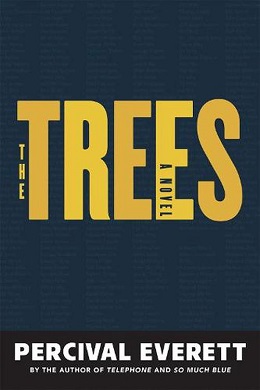Related Research Articles

The civil rights movement was a social movement and campaign from 1954 to 1968 in the United States to abolish legalized racial segregation, discrimination, and disenfranchisement in the country. The movement had its origins in the Reconstruction era during the late 19th century and had its modern roots in the 1940s, although the movement made its largest legislative gains in the 1960s after years of direct actions and grassroots protests. The social movement's major nonviolent resistance and civil disobedience campaigns eventually secured new protections in federal law for the civil rights of all Americans.

Leflore County is a county located in the U.S. state of Mississippi. As of the 2020 census, the population was 28,339. The county seat is Greenwood. The county is named for Choctaw leader Greenwood LeFlore, who signed a treaty to cede his people's land to the United States in exchange for land in Indian Territory. LeFlore stayed in Mississippi, settling on land reserved for him in Tallahatchie County.

Wilmington is a port city in and the county seat of New Hanover County in coastal southeastern North Carolina, United States. With a population of 115,451 in the 2020 census, it is the eighth-most populous city in the state. Wilmington is the principal city of the Wilmington, NC Metropolitan Statistical Area, which includes New Hanover, Pender, and Brunswick counties in southeastern North Carolina, which had a population of 285,905 in 2020.

Emmett Louis Till was an African American boy who was abducted, tortured, and lynched in Mississippi in 1955 at the age of 14, after being accused of offending a white woman, Carolyn Bryant, in her family's grocery store. The brutality of his murder and the acquittal of his killers drew attention to the long history of violent persecution of African Americans in the United States. Till posthumously became an icon of the civil rights movement.

Charles Brantley Aycock was the 50th governor of the U.S. state of North Carolina from 1901 to 1905. After starting his career as a lawyer and teacher, he became active in the Democratic Party during the party's Solid South period, and made his reputation as a prominent segregationist.

Robert Franklin Williams was an American civil rights leader and author best known for serving as president of the Monroe, North Carolina chapter of the NAACP in the 1950s and into 1961. He succeeded in integrating the local public library and swimming pool in Monroe. At a time of high racial tension and official abuses, Williams promoted armed Black self-defense in the United States. In addition, he helped gain support for gubernatorial pardons in 1959 for two young African-American boys who had received lengthy reformatory sentences in what was known as the Kissing Case of 1958.

The Tallahatchie River is a river in Mississippi which flows 230 miles (370 km) from Tippah County, through Tallahatchie County, to Leflore County, where it joins the Yalobusha River to form the Yazoo River, which ultimately meets the Mississippi River at Vicksburg, Mississippi. The river is navigable for about 100 miles (160 km). At Money, Mississippi, the river's flow measures approximately 7,861 cubic feet per second.
Henry Dortress "Dickie" Marrow Jr. was an African-American veteran of the Army and known for being shot and killed by whites in a racial confrontation in Oxford, North Carolina at the age of 23. His murder and the acquittal of two suspects by an all-white jury were catalysts for a renewal of civil rights actions in the county seat. Public facilities and businesses had remained segregated six years after passage of national civil rights legislation.

Alfred Moore Waddell was an American politician and white supremacist. A member of the Democratic Party, he served as a U.S. representative from North Carolina between 1871 and 1879 and as mayor of Wilmington, North Carolina from 1898 to 1906.

"Dixie", also known as "Dixie's Land", "I Wish I Was in Dixie", and other titles, is a song about the Southern United States first made in 1859. It is one of the most distinctively Southern musical products of the 19th century. It was not a folk song at its creation, but it has since entered the American folk vernacular. The song likely rooted the word "Dixie" in the American vocabulary as a nickname for the Southern U.S.

The Wilmington insurrection of 1898, also known as the Wilmington massacre of 1898 or the Wilmington coup of 1898, was a coup d'état and a massacre which was carried out by white supremacists in Wilmington, North Carolina, United States, on Thursday, November 10, 1898. The white press in Wilmington originally described the event as a race riot caused by black people. Since the late 20th century and further study, the event has been characterized as a violent overthrow of a duly elected government by a group of white supremacists.

Mamie Elizabeth Till-Mobley was an American educator and activist. She was the mother of Emmett Till, the 14-year-old teenager murdered in Mississippi on August 28, 1955, after accusations that he had whistled at a Caucasian grocery store cashier named Carolyn Bryant. For Emmett's funeral in Chicago, Mamie Till insisted that the casket containing his body be left open, because, in her words, "I wanted the world to see what they did to my baby."

Blood Done Sign My Name (2004) is a historical memoir written by Timothy B. Tyson. He explores the 1970 murder of Henry D. Marrow, a black man in Tyson's then hometown of Oxford, North Carolina. The murder is described as the result of the complicated collision of the Black Power movement and the white backlash against public school integration and other changes brought by the civil rights movement.
Radio Free Dixie was a radio program broadcast from Cuba by American Civil Rights Leader Robert F. Williams in the early 1960s that advocated for racial equality. It called on black Americans to rise up against what Williams saw as an inherently racist system. The radio program featured music, political conversation, and storytelling.

Benjamin Franklin Chavis Jr. is an African-American activist, author, journalist, and the current president and CEO of the National Newspaper Publishers Association. He serves as national co-chair for the political organization No Labels.
A racial hoax occurs when a person falsely claims that a crime was committed by member of a specific race. The crime may be fictitious, or may be an actual crime.

John Peder Zane is an American journalist who is a columnist for RealClearPolitics and Articles Editor for RealClearInvestigations. His national awards include the Distinguished Writing Award for Commentary from the American Society of News Editors.

John Campbell Dancy was an American politician, journalist, and educator in North Carolina and Washington, D.C. For many years he was the editor of African Methodist Episcopal (AME) Zion church newspapers Star of Zion and then Zion Quarterly. In 1897 he was appointed collector of customs at Wilmington, North Carolina, but was chased out of town in the Wilmington insurrection of 1898, in part for his activity in the National Afro-American Council which he helped found that year and of which he was an officer. He then moved to Washington, D.C., where he served as Recorder of Deeds from 1901 to 1910. His political appointments came in part as a result of the influence of his ally, Booker T. Washington.
I Am More than a Wolf Whistle: The Story of Carolyn Bryant Donham is a memoir by Carolyn Bryant Donham, the white woman who accused the African-American 14-year-old Emmett Till of touching her hand and flirting with her at her store in 1955, an incident which led to his lynching. Written before 2008, the manuscript was originally planned for a 2036 posthumous release, but leaked by historian Timothy Tyson and released to the public in July 2022.

The Trees is a 2021 novel by American author Percival Everett, published by Graywolf Press.
References
- ↑ "2007– Timothy Tyson". Archived from the original on 2015-02-11.
- 1 2 3 Mitchell, Jerry (2023-08-28). "The Emmett Till lynching has seen more than its share of liars. Is Tim Tyson one of them?". Mississippi Today. Retrieved 2024-02-15.
- 1 2 Barrett, Davlin (December 7, 2021). "Justice Department closes Emmett Till investigation without filing charges", The Washington Post . Retrieved June 2, 2022
- 1 2 "Bombshell quote missing from Emmett Till tape. So did Carolyn Bryant Donham really recant?". The Clarion-Ledger. Retrieved 2024-02-15.
- ↑ "The Ghosts of 1898". The News and Observer. November 17, 2006. p. 132. Retrieved July 15, 2022.
- ↑ Duke History Department
- ↑ The South in Black and White Archived 2011-07-18 at the Wayback Machine , Center for Documentary Studies, Duke University
- ↑ "Timothy B. Tyson". Simon & Schuster. Retrieved 14 May 2022.
- ↑ NABJ Announces 2007 Salute to Excellence Award Winners Archived 2009-01-06 at the Wayback Machine
- ↑ Fox, Margalit (2023-04-27). "Carolyn Bryant Donham Dies at 88; Her Words Doomed Emmett Till". The New York Times. ISSN 0362-4331 . Retrieved 2023-05-12.
- ↑ "'Non-violent protest' halts Wake school board meeting", WRAL.com